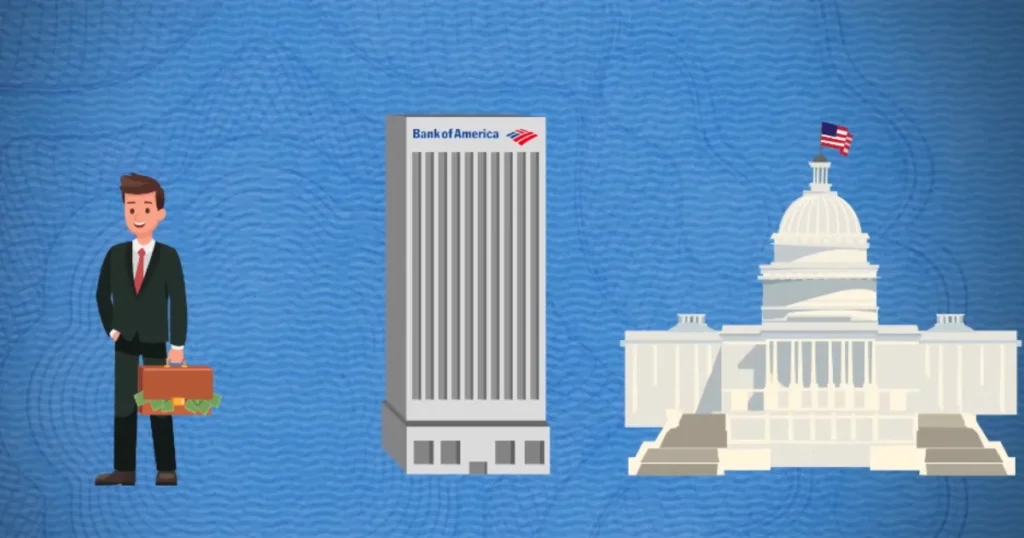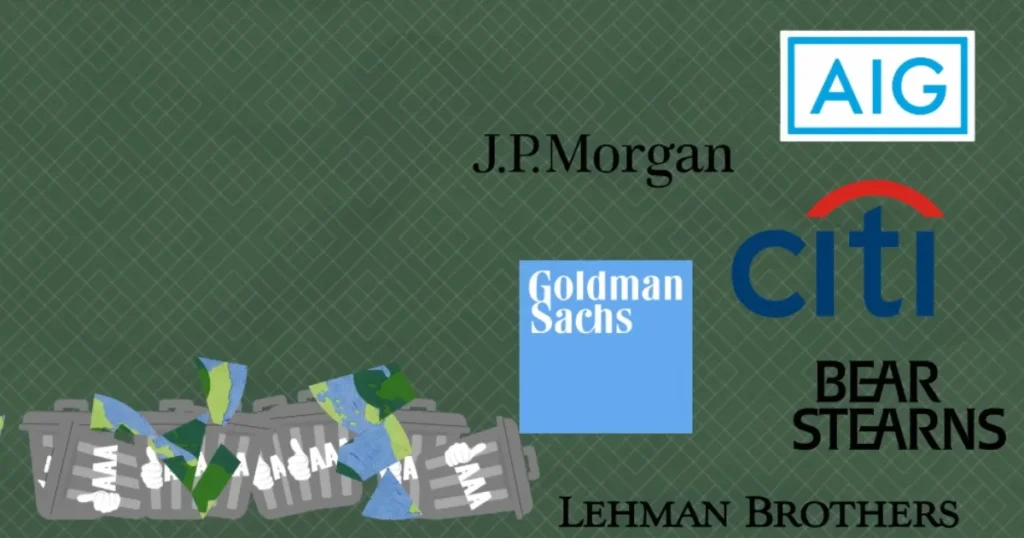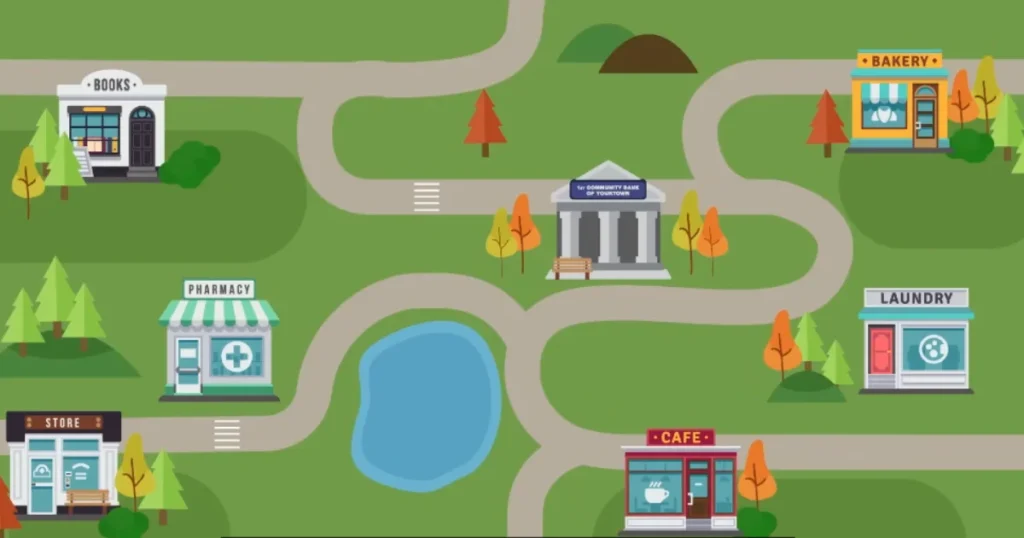With the year 2024 looming on the horizon, it appears that the system has no shortage of options, to say the least, particularly for consumers looking to select a financial institution. There seem to be operational conventional banks, credit unions, or even online-only ones. The purpose of this article is to help you understand the best banks and credit unions for your needs and tell you what factors to keep in mind when selecting an institution.
What Will Be The Top Credit Unions and Banks in 2024?
What Is the Most Important Factor For You When Selecting a Bank?
There’s no doubt that the best banks in 2024 will be determined by the specific needs of consumers. Being able to offer checking accounts with no fees, providing a compelling savings account and having great interest rates are very important factors in choosing banks. You have a better chance of finding a complete banking experience at a bank that offers all the types of products and services like investment accounts, money markets accounts, etc. Besides that, think about the trade-off between availing of in-person banking at local branches or the ease and convenience of opening a savings account with an online bank. In the end, the best bank for you is the one that best fits.
How to Evaluate the Best Banks and Credit Unions?
It is important to note their charges and interest rates as well as the accounts offered by the banks and credit unions being considered. Many banks have promotional bank offers for their new customers, which sounds good to the customer, but one has to be careful since such introductory offers may not benefit the bank in the long run. Seek to locate the banks that offer the most checking account options with the least amount of fees as well as the best managing your accounts. Also, it would also help seeking whether the bank has online banking facilities or conducts physical interaction with their clients. When you use all these methods, it becomes easy to settle for the best bank.
Are Credit Unions Better than Banks?
La polémica entre las cooperativas de ahorro y crédito y los bancos es a menudo sojyobre las diferencias en la estructura y también en el tipo de servicio. A credit union is a non-profit financial institution owned by its members, which typically provides lower charges and more favorable interest rates for loans and savings accounts than a typical bank. Many people consider that credit unions are better in terms ofthe service recipient while banks offer a bigger range of products and services. But still, it is all about your requirements. You want to have lower charges and focus on community, it is wise to join a credit union.
How to Pick a Bank or a Credit Union that is Most Appropriate for You?
Which Factors are Important in the Decision Making Process?
When choosing a bank or credit union, there are several aspects that need to be put into consideration. To begin with, make sure to check which account options they have—checking accounts, saving accounts, and investment accounts. After this, assess the costs related to these accounts, such as the fixed maintenance costs along with ATM fees. It is also important to consider the scale of operations; it is important to ask yourself whether you would rather go for a mainstream bank such as Chase Bank with expansive branches and coverage or a more efficient online focusing bank such as Axos Bank. Finally, look at customer service as well as the online banking options, since these can improve your banking experience significantly.
How will an online bank be evaluated against a traditional bank?
Evaluating online banks versus traditional banks requires understanding the pros and cons of each. Online banks typically offer higher interest rates and lower fees for banking because they have reduced the cost of physical branches but some customers may miss out on personalized banking services offered by banks that it is traditionally used to give it to him personally. Consider your savings type when you’re deciding which savings to choose—traditional savings might be more suitable if you need more of your own help and conversely, if you’re comfortable managing manage your finances digitally maximize your savings with competitive interest rates and user -friendly platforms To find online banking that can help you

What are the benefits of credit union membership?
Credit union membership has several benefits that can improve your overall banking experience. Credit unions often offer lower interest rates on loans and higher interest rates on savings accounts than many traditional banks. This makes them an attractive option for borrowing and saving. Plus, credit unions often have lower fees. Includes a free checking account and minimal maintenance fees. Credit union membership often results in a more personalized service experience. Because credit unions focus on member satisfaction, credit unions can also provide a sense of community. This can especially appeal to consumers who are looking for a more involved financial relationship.
What are the best checking and savings accounts in 2024?
What are the qualities of a good checking account?
As of 2024, penalty-tested loans are generally characterized by no or low monthly protection fees. Access to a large ATM community and online banking capabilities Some banks are certified to offer free checking loans and do not apply minimum balance requirements. This makes it ideal for regular transactions. Look for an account that offers overdraft protection and rewards applications. This can help add value to your banking experience. Additionally, consider a bank that offers easy access to online banking. It allows you to manage your range of expenses without any problems from your phone or laptop.
How to Find the Best Savings Accounts for Your Goals?
Finding the best savings accounts for your financial goals in 2024 requires a thorough comparison of interest rates, fees, and account features. High-yield savings accounts are particularly appealing for those looking to maximize their savings; these accounts typically offer interest rates significantly higher than traditional savings accounts. Many banks also provide online savings options that allow for easy fund transfers and access. When selecting a savings account, consider your saving habits and whether you prefer flexibility or the ability to earn higher interest over time. Additionally, always read the fine print regarding withdrawal limits and fees associated with the account to avoid surprises down the line.
What is a High-Yield Savings Account and How to Get One?
A high-yield savings account refers to a savings account designed to encourage users to deposit money by promising them a higher percentage in interest than the usual savings accounts. Such accounts are available through mail order or branch banks, and hence only a few incorporate the best rates due to operating strategies. To acquire a high-yield savings account, for instance, look for high-yield savings accounts as they will be available in end year 2024. It is prudent to also consider whether minimum fees and rates to be maintained are charged and pick the best fit for your finances. After narrowing down on the account, the process of opening a high-yield savings account is rather easy as it can be done online or via a bank branch after one has made a decision regarding their preference.
What are the Largest Banks in the U.S. and What Do They Offer?
Who are the Largest Banks in the U.S. in 2024?
The largest banks in the U.S. in 2024 include giant organizations such as JPMorgan Chase, Bank of America, and Wells Fargo. These banks control a significant portion of the market and enable consumers to access several financial products and services. They have numerous physical branches and effective online banking services that provide a reach to millions of customers in the country. These large banks also offer different types of accounts like checking, savings, CDs, investment accounts and so forth so that every possible requirement for their clients is fulfilled.

What Services Are Offered By The Major Banks?
The top banks in the United States have an extensive range of services including but not limited to personal banking, commercial banking, and investment and savings management. Clients can access different types of financial services such as opening a checking, saving, money market accounts or applying for loans. More often than not, a good number of such banks have advanced online banking facilities that enable their clients to access and operate their accounts from almost anywhere. On top of that, large banks tend to provide additional and different services like providing mortgages and credit cards, thus enhancing their position as a financial supermarket.
How to Use In-Person Banking Services?
It is quite easy to access in-person banking services whenever you pick a large bank that has a big footprint. Most of the banks in America (such td Bank and Chase Bank) have quite a number of branch offices that offer face-to-face customer service. If you wish to go to an office, you can use the bank website or the bank app to search for an office branch installation near you. Also, a good number of these banks have longer hours as well as open on weekends, thus this helps a lot to get help with banks at any time that one would wish to get it. In case you would like to do your transactions at the bank in person, make sure that the bank you are choosing has branches where you live and also look for their operating hours before going.
A Guide to Bank Account Opening Procedures
What are the Personal Identification Requirements for Opening a Bank Account?
When opening a bank account, you will have to provide some documents to ascertain your identity. Normally, a bank would also need your government issued identification, driver’s license or a passport with a social security number. However, additional requirements may include the provision of a physical address: e.g. a utility bill or a lease. Most importantly, it’s advisable to collect all these documents prior to starting the process of opening of the new bank account so as to make the process easier and less cumbersome, whether opening an account online or walking into a bank branch.
How to Create an Online Bank Account?
The process of creating an online bank account is simple. It can even be performed in a matter of minutes. Firstly, carry out a survey of available online banks and evaluate their account features. After that, you will have to pick a bank and go to its official site and locate where they open accounts. Follow the prompts to complete the forms, which includes inputting your details and attaching the appropriate files. Most institutions will often allow the account to be deposit funded via itch transfer, cheque or debit card. Upon completion of these procedures, you shall receive an advice , your accounts bearing will be opened.

What to Look For When Deciding on the Money Market Account?
Before opening a money market deposit account, it would be wise to compare the interest rates, expenses, and minimum deposit limits. Such types of savings accounts can provide better earnings than ordinary savings accounts but at the cost of more savings. Try and find out minimum withdrawals and other account-related charges such as monthly fees. Furthermore, check if the bank allows for the online access of your account since this contributes to better banking services. Therefore, with the help of these points, one can weigh the pros and cons of having a money market account as per their financial goals.
FAQS
Q: What are the best banks in America for 2024?
A: The best banks in America for 2024 include both large banks and credit unions that offer competitive rates, low fees, and excellent customer service. Some top picks feature institutions like Regions Bank, which is known for its comprehensive banking products and great customer satisfaction.
Q: What should I consider when choosing a large bank?
A: When selecting a large bank, consider factors such as the variety of banking products offered, fees associated with accounts and CDs, mobile and online banking capabilities, and customer service ratings. Look for banks that provide the best free checking accounts and favorable savings options.
Q: Are there any best online banks recommended for 2024?
A: Yes, some of the best online banks for 2024 offer high-interest savings accounts and competitive rates on CDs. They typically have lower fees and better savings and money market accounts compared to traditional banks due to lower overhead costs.
Q: How can I switch banks effectively?
A: To switch banks effectively, start by researching and choosing a bank that fits your needs. Open your new account, set up direct deposits and automatic payments, then transfer funds. Finally, close your old account only after confirming all transactions have cleared.
Q: What are the best CD rates currently available?
A: The best CD rates can vary widely among banks and credit unions. For 2024, it is advisable to compare national bank offerings to find the best CD that suits your financial goals. Look for institutions that provide competitive rates and terms that match your saving strategy.
Q: What types of accounts and CDs should I consider?
A: You should consider a mix of savings accounts and CDs based on your financial goals. High-yield savings accounts are great for liquidity, while CDs typically offer higher interest rates in exchange for leaving your money untouched for a specified term.
Q: What are the benefits of banking with the largest banks in the country?
A: Banking with the largest banks in the country can offer benefits such as extensive branch networks, a wide range of banking products, advanced online and mobile banking features, and often better customer service due to established reputations.
Q: How do savings and money market accounts differ?
A: Savings accounts typically offer lower interest rates but allow for easier access to funds, while money market accounts generally provide higher interest rates and may come with check-writing privileges. Evaluating your need for liquidity versus interest earnings will help you choose the right account.
Q: What is the importance of customer satisfaction in banking?
A: Customer satisfaction is crucial as it often reflects the quality of service you can expect from a financial institution. High levels of banking satisfaction usually indicate responsive customer service, better account management options, and overall a more positive banking experience.